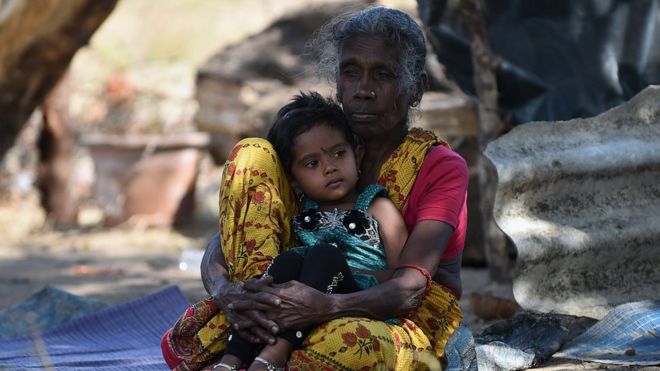The United Nations has called for a special court to try war crimes committed during the Sri Lankan army's long conflict with Tamil Tiger rebels.
In a long-delayed report, the UN Human Rights Council accused both sides of atrocities, especially during the final stages of the war in 2009. Sri Lanka said it would hold a domestic inquiry but would not allow the UN court, which would have foreign judges. One UN estimate is that 40,000 Tamils died in the final army offensive.
Earlier this week Sri Lanka's new government unveiled plans to set up a truth and reconciliation commission to examine war crimes allegations, including those against the military. The previous government of President Mahinda Rajapaksa had resisted international pressure to investigate the issue.
Sexual violence and torture
"Our investigation has laid bare the horrific level of violations and abuses that occurred in Sri Lanka, including indiscriminate shelling, extrajudicial killings, enforced disappearances, harrowing accounts of torture and sexual violence, recruitment of children and other grave crimes," he said. He also called on the Sri Lankan government to remove from office anyone if there were credible grounds to believe they had committed human rights abuses.
Other main points include
Numerous unlawful killings between 2002 and 2011, allegedly by both sides
Enforced disappearances affecting tens of thousands over decades
The "brutal use of torture" by security forces, in particular during the immediate aftermath of the conflict
Extensive sexual violence against detainees by the security forces "with men as likely to be victims as women"
Forced recruitment of adults and children by the rebels, particularly towards the end of the conflict
The report said forced recruitment by the rebels would, if proven in court, be a war crime. The denial of humanitarian assistance - which it said the government might be guilty of - could also constitute a war crime.
Senior Sri Lankan minister Rajitha Senaratne told the BBC: "Our stand on war crimes is we need an internationally accepted local inquiry. We are not ready to agree with the international inquiries."
Despite its promises to pursue accountability, the government elected last month would be reluctant to hold war-crimes trials, correspondents say.


No comments:
Post a Comment